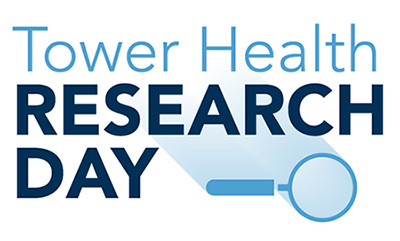Keywords:
Thrombotic microangiopathy, microangiopathic hemolytic anemia, monoclonal antibody, plasma exchange
Start Date
14-10-2021 9:40 AM
End Date
14-10-2021 10:40 AM
Recommended Citation
Rahimian, Shoja, "MABs for TMAs: When Plasma Exchange Is Not Enough" (2021). Tower Health Research Day. 1.
https://scholarcommons.towerhealth.org/th_researchday/2021/postersession1/1
MABs for TMAs: When Plasma Exchange Is Not Enough
Monoclonal antibody (mAb) therapies are being directed at an increasing selection of disorders, particularly within the realm of hematology. Thrombotic microangiopathies (TMA) such as thrombotic thrombocytopenic purpura (TTP) and complement-mediated atypical hemolytic uremic syndrome (aHUS) are examples of disease processes that are amenable to intervention with such novel therapies. The mAb-based treatments are particularly helpful in treatment of these TMAs when plasma exchange does not yield clinical benefit.
This presentation will describe a case of TTP and a case of aHUS that saw successful treatment with mAb-based therapy. The diseases will be compared using clinical presentation, laboratory results, and peripheral smear images to promote their recognition. Furthermore, pathophysiology differences of the diseases will be emphasized to explain the indications of the unique therapies.
The presentation will focus on caplacizumab and eculizumab mAb therapies. Caplacizumab has found a place in the treatment of TTP refractory to other therapies, since its FDA approval in 2019 following results from the double-blind, controlled HERCULES trial (Scully et al NEJM 2019). This trial showed that caplacizumab reduced recurrence of TMA events by almost 67% more than placebo. This mAb will be compared to Eculizumab which has been FDA approved for aHUS since 2011 based on prospective studies. Long term data presented by Menne et al BMC 2019 shows only 4% of patients who remained on eculizmab experienced relapsed TMA events.



Comments
2nd Place Award - Case Report Poster Presentation